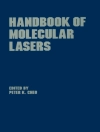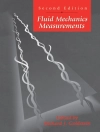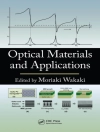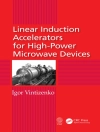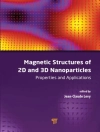This book presents the proceedings of the 5th International Conference on Reliability Safety & Hazard-2024, held in Mumbai during February 21–24, 2024. It covers the latest advances in artificial intelligence and machine learning in development of risk-conscious culture. Various topics covered in this volume are reliability prediction, precursor event analysis, fuzzy reliability, structural reliability, passive system reliability, digital system reliability, risk-informed approach to decision making, dynamic PSA, uncertainty and sensitivity modeling, among others. The book is a valuable resource for researchers and professionals working in both academia and industry in the areas of complex systems, safety-critical systems, and risk-based engineering.
Зміст
A Support Vector Machine Model for Detection of Transients in Nuclear Reactor.- Reinforcement Learning for Mission Reliability Based Selective Maintenance Optimization.- Role of Ai in Anti-drone Systems: A Review.- Transient Identification in Nuclear Power Plants by Pca Based Neural Networks.- Internal Leakage Diagnosis of a Hydraulic Cylinder Using C-lstm Neural Network.- Assessment of Wind Forecasts from a Numerical Weather Prediction Model for Indian Npp Sites.- Development of Kalman Filter Based Source Term Estimation Model (Stem).- Evaluation of Internal Fire Hazards in Indian Nuclear Power Plants.- A Novel Implementation of Tableau Software for Visualisation of Seismic Data from Himalayan Region.- Time-frequency Analysis of Strong Ground Motions from the 1989 Loma Prieta Earthquake.- Prediction of Effective Duration of Vertical Ground Motions Based on Machine Learning Algorithms.- Rul Estimation of Igbt Modules under Power Cycling Stress.- Reliability and Cost-effectiveness Trade-offs in Hierarchical Industrial Networks.- Investigation of Primary Radiation Damage in Nanocrystalline Tantalum Using Machine-learning Interatomic Potential: An Atomistic Simulation Study.- Performance Evaluation of Silicon Carbide (Sic) Power Mosfets under Gamma Radiation.
Про автора
Prof. Prabhakar V. Varde started his carrier at Bhabha Atomic Research Centre in 1983 as nuclear engineering trainee of BARC Training School in 27th Batch and joined erstwhile Reactor Operations and Maintenance Group now Reactor Group and served initially as commissioning and later operations engineering for Dhruva—a 100 MW research reactor at BARC and rose through the administrative ladder and retired in 2019 as an associated director, Reactor Group. During his service, he completed his Ph.D. from IIT, Bombay in 1996 in AI-based operator advisory system and later focused his research on nuclear safety in general and risk-based engineering in particular, while working for reactor-related services responsibilities.
Alongside his regular duties, he continued R&D in the area of Risk and Reliability and Academics. He also served as a senior professor, guide and member of the Board of Studies in Engineering Sciences of Homi Bhabha National Institute, Mumbai.
Dr. Gopika Vinod joined with Reactor Safety Division of Bhabha Atomic Research Centre as a scientific officer from 37th batch of training school after completing her graduation in computer engineering. She received her doctoral degree in Reliability Engineering from Indian Institute of Technology, Bombay, and has also been post-doctoral fellow at Steinbeis Advanced Risk Technologies, Germany. She is a recipient of DAE Young Engineer Award 2007, DAE Group Achievement Award (2015, 2019). Currently, she is heading the Probabilistic Safety Section of Reactor Safety Division of BARC. She also holds faculty position as a professor and dean academic (Engg Sciences-2 to BARC) with Homi Bhabha National Institute. She is also a fellow at Indian National Academy of Engineering.
Mr. Narendra Joshi completed his Bachelor’s degree in Mechanical Engineering from Shivaji University, Kolhapur, and joined Bhabha Atomic Research Centre (BARC), Mumbai, in the year 1990 and started his career in Operations and Maintenance of Nuclear Research Reactors. For over three decades, he has been serving in BARC. Apart from operations and maintenance, his expertise also includes root cause analysis and human resource development. He was actively involved in development of a full-scope simulator for research reactor, Dhruva, at BARC for operator training and human factor development. He was also involved in preparation of probabilistic risk assessment of research reactors at BARC and other nuclear facilities.
He is a founder member of the Society for Reliability and Safety and currently working as a managing editor of Springer International Journal on Life Cycle Reliability and Safety Engineering.


